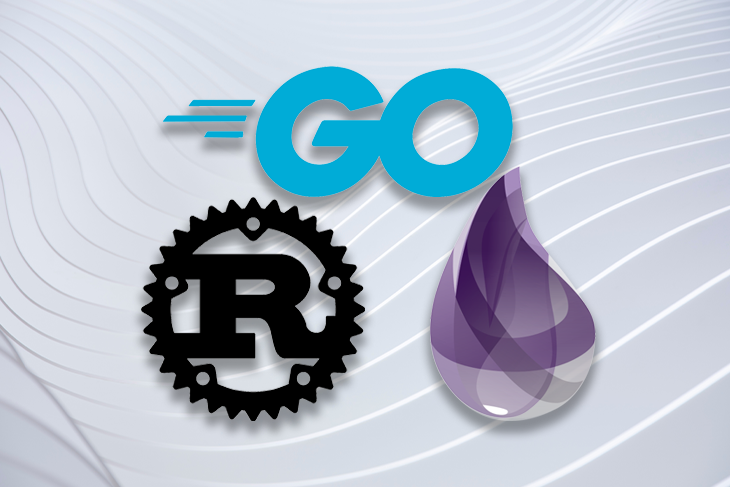Comparing Elixir with Rust and Go

Comparing Elixir with Rust and Go.
- Elixir is a functional programming language that runs on the Erlang VM. It is known for its focus on concurrency, fault tolerance, and scalability.
- Rust is a programming language that aims to provide reliability and efficiency. It offers memory safety, concurrency, and low-level control.
- Go is a statically typed, compiled language that focuses on simplicity, efficiency, and ease of use. It has built-in support for concurrency through goroutines and channels.
Comparing Elixir with Go:
- Elixir and Go both provide concurrency features, but they have different approaches. Elixir uses lightweight processes that communicate through message passing, while Go uses goroutines and channels.
- Elixir processes are isolated and do not share memory, allowing for fault-tolerant and scalable systems. Go's goroutines are lightweight threads that can be scheduled across multiple cores.
- Elixir's concurrency model is based on the actor model, which allows for easy supervision and fault recovery. Go's channels provide a way to synchronize and communicate between goroutines.
- Elixir's concurrency model is well-suited for handling large amounts of traffic and building distributed systems. Go's concurrency model is simpler and more lightweight, making it easier to reason about and use in smaller scale applications.
Comparing Elixir with Rust:
- Elixir and Rust have different goals and use cases. Elixir is focused on building scalable and fault-tolerant applications, while Rust aims for reliability and efficiency.
- Elixir's concurrency model is based on lightweight processes and message passing, which makes it easy to handle concurrency and fault tolerance. Rust provides low-level control and memory safety, allowing for efficient and reliable systems.
- Elixir runs on the Erlang VM, which is known for its performance and fault tolerance. Rust is a compiled language that can achieve high performance and has minimal runtime overhead.
- Elixir has a smaller community and job market compared to Rust. Rust has gained popularity for its unique features and is widely used in areas such as systems programming and embedded development.
Benchmarks in Elixir, Rust, and Go:
- Performance benchmarks can vary depending on the specific use case and implementation. It is important to consider factors such as the workload, hardware, and optimizations.
- Elixir's performance is influenced by the Erlang VM, which is optimized for handling concurrency and fault tolerance. Rust's performance is influenced by its low-level control and memory safety features.
- Go's performance is optimized for simplicity and efficiency, with support for lightweight concurrency through goroutines and channels.
- Benchmarking can be done by comparing the execution time and memory usage of the same task implemented in different languages. It is important to consider the specific requirements and constraints of the application when interpreting the results.
Overall, Elixir, Rust, and Go have different strengths and use cases. Elixir excels in handling concurrency and fault tolerance, Rust focuses on reliability and efficiency, and Go prioritizes simplicity and efficiency for smaller scale applications. Choosing the right language depends on the specific requirements and constraints of the project.